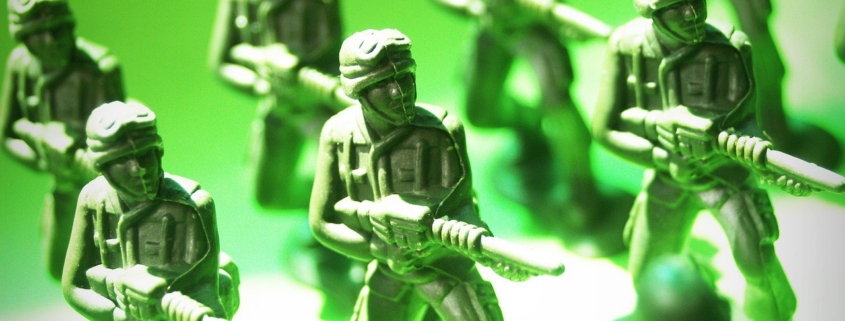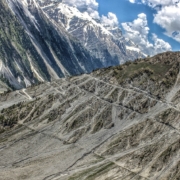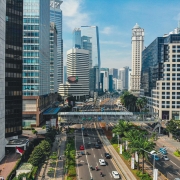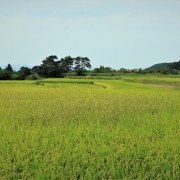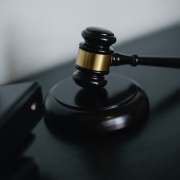What was the Brahimi Report?
Topic of Study [For H1/H2 History Students]:
Paper 1: Safeguarding International Peace and Security
Section B: Essay Writing
Theme III Chapter 3: UN Reforms
Historical Context: The Report
Following the disasters in Bosnia and Rwanda, the United Nations Secretary-General Kofi Annan appointed the Panel on United Nations Peace Operations. He tasked the Panel to review the challenges faced by ongoing peace operations and make specific recommendations. The Panel was chaired by the UN Under-Secretary-General Lakhdar Brahimi.
On 21 August 2000, the Report of the Panel on United Nations Peace Operations (also known as the “Brahimi Report” in short) was published, offering a comprehensive assessment of peacekeeping operations as well as specific recommendations to finetune the processes.
The recommendations focus, to a large degree, on structural and management problems, but the Panel also commented on the doctrine on which peace operations should be conducted. Although the Panel states that the ‘consent of the local parties, impartiality and the use of force only in self-defence should remain the bedrock principles of peacekeeping’ (Brahimi Report, para. 48), the Report calls for more robust mandates that are also clear, credible and achievable, and does not only question, but also modifies, the traditional approach to peacekeeping concerning the consent of the parties, the principle of impartiality and the non-use of force.
An excerpt taken from “International Peacekeeping” by Boris Kondoch.
Let’s take a look at some of the points raised in the Report:
1. The need for clear, credible and achievable UN mandates
The Brahimi Report advised the UN Secretariat to highlight the key requirements for peace operations in dangerous environments. Also, the Secretariat should inform the UN Security Council (UNSC) when a possible operation goes beyond its capacity. By doing so, the UNSC can hold consultations with troop contributing member states when making risk assessments before deployment.
2. Requirements for effective peacebuilding
The Panel recognised the essential role that peacekeepers play in the post-conflict phase. It urged the UN to ensure that there is adequate budget allocated for disarmament, demobilisation and reintegration (DDR). Delays in funding may risk the resurgence of violence in mission areas.
3. Enhancements to the recruitment and deployment of troops
While the United Nations Stand-by Arrangement System (UNSAS) was already established in the early 1990s under the former Secretary-General’s “An Agenda for Peace” report, the Brahimi Report made recommendations to improve on it.
In particular, the Panel requested the re-organisation of the UNSAS, with the inclusion of four levels of commitment, a new “Rapid Deployment Level” for troop resources available within 30 or 90 days of a Security Council mandate. In addition, the Department for Peacekeeping Operations (DPKO) will create a “Military On-Call List”. This List will facilitate timely deployment of military headquarter staffs of new missions.
Given that prevention is better than cure, one possible option for the UN would be to engage in the kind of preventive deployment that appeared to have worked in Macedonia. Deployment of peacekeepers in ‘unstable areas’ would appear to provide the possibility of helping to provide an environment in which problems could be nipped in the bud, or at least controlled. […]
However, the option of preventive diplomacy faces several problems. […] Such political will seems to have been lacking in some instances and at best the UN Security Council has been reactive to events rather than taking a more pro-active stance. Secretary-General Annan has highlighted the root causes of conflict arising out of the Brahmi Report, but it requires political action to support his efforts to address such problems. Moreover, states may be offended by being named as sites for potential armed conflict; particularly intense conflict and recourse to this option would raise serious sovereignty issues.
An excerpt taken from “United Nations Peacekeeping in the Post-Cold War Era” by John Terence O’Neill and Nick Rees.
What can we learn from this article?
Consider the following question:
– Assess the view that the Brahimi Report showcased the relevance of the United Nations in maintaining international peace and security.
Join our JC History Tuition to learn more about the United Nations. The H2 and H1 History Tuition feature online discussion and writing practices to enhance your knowledge application skills. Get useful study notes and clarify your doubts on the subject with the tutor. You can also follow our Telegram Channel to get useful updates.
We have other JC tuition classes, such as JC Math Tuition and JC Chemistry Tuition. For Secondary Tuition, we provide Secondary English Tuition, Secondary Math tuition, Secondary Chemistry Tuition, Social Studies Tuition, Geography, History Tuition and Secondary Economics Tuition. For Primary Tuition, we have Primary English, Math and Science Tuition. Call 9658 5789 to find out more.

